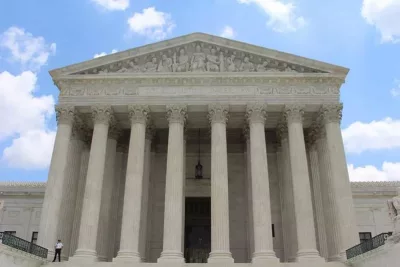
Can You Sue If You Are Falsely Accused of Racism?
This page has been peer-reviewed, fact-checked, and edited by qualified attorneys to ensure substantive accuracy and coverage.
If you have been falsely accused of racism, you may be wondering if you have any legal recourse. Most accusations of racism, such as general statements that “so and so is racist”, are considered a non-actionable opinion – meaning you cannot generally sue.
However, if the statement(s) includes a false statement of fact, one that typically alleges the plaintiff engaged in a specific act motivated by racism, then you may be able to sue for defamation.
At Minc Law, we have extensive experience assisting targets of malicious defamatory statements that carry serious consequences in their everyday lives. We know the ins and outs of defamation law in the United States and can help determine when false accusations cross the line into a matter that can be litigated.
In this article, we will discuss situations where an individual can sue over a false accusation of racism. We will also cover what to do if you are falsely accused of racism.
Have you been falsely accused of racism?
Defend your reputation with Minc Law. Let us help you explore your legal options and craft an effective strategy.
Contact Minc LawThe Impact of False Accusations of Racism
False accusations of racism are not uncommon, and they can have severe impacts on both the personal and professional life of the accused. In some cases, those falsely accused may even lose their job or be passed over for promotions.
What Are False Allegations?
False accusations are a serious problem, especially in the context of racism. All too often, people are falsely accused of racism, either out of malice or ignorance. This can have a devastating impact on the lives of those involved and can contribute to a culture of suspicion and mistrust. It is therefore vital that we try to understand the phenomenon of false accusations to better deal with it.
First, it helps to define false allegations. Specifically, false allegations are unsubstantiated claims that lack supporting evidence. Because the statement lacks evidence, it can be difficult, or impossible, to determine whether it is actually true or false.
There are several different types of false accusations. The first type is a completely fabricated claim, where the accuser has simply made up the allegation out of thin air. These are typically rare but can happen.
The second type is where the accused is wrongly accused due to mistaken identity or some other misunderstanding. This is much more common and can be very difficult to resolve.
The third type is a mixed allegation, where some elements of the accusation are true but other parts are not. This can be particularly tricky to deal with, as it can be hard to determine what is true and what is not.
Each of these false accusations can give rise to a defamation claim if there is a false assertion of fact that damages the accused’s reputation.
What Might False Accusations of Racism Look Like?
False accusations of racism can take many forms, including:
- Asserting that you fired an individual for racial reasons;
- Asserting that a business would not let a customer patronize the business due to the customer’s race;
- Asserting that an individual was attacked due to their race;
- Asserting that an individual was profiled because of their race;
- Asserting that you engaged in racial discrimination or harassment.
Even if you are unable to establish a valid defamation claim, you might have other civil claims available to you if you have been falsely accused of racism.
The Potential Consequences of Being Falsely Accused of Racism
Being falsely accused of racism is a serious matter that can have countless consequences for individuals and businesses alike.
Firstly, the accused person may suffer from emotional trauma, such as feelings of guilt, shame, and anxiety.
Secondly, the accusation may damage the accused person’s reputation, leading to social isolation and difficulty in finding employment.
Finally, false accusations can contribute to a climate of mistrust and hostility, making it more difficult for people to resolve real instances of discrimination and prejudice.
Other consequences of false allegations include:
Shame & Embarrassment
Racism is morally reprehensible, and being associated with it – even falsely – can be incredibly distressing. Additionally, the accused may be ostracized by their family and friends, as people may be quick to believe the accusation without first attempting to establish the truth. This can lead to feelings of loneliness and isolation.
Inability to Obtain Employment
If the accusation goes viral on social media or appears when a potential employer searches your name, they may avoid you as a job candidate.
Termination or Resignation From Job
Another potential outcome is that the accused person might be disciplined or fired from their job as a result of the negative publicity.
Another possibility is that the accused person might resign from their job in the wake of a false accusation, even if they are not disciplined by their employer. This could be due to the feeling of being persecuted in the workplace or from fear of further public ridicule.
Suicidal or Self-Harming Thoughts
Feelings of shame and isolation, combined with the other possible consequences of a false accusation, can lead to thoughts of suicide and self-harm.
Expulsion or Dropping Out of School
Depending on the nature of the accusation, some allegations of racism can result in school investigations or disciplinary action, like expulsion.
Even if there is no disciplinary action, public ridicule and shame can lead a victim of false allegations to drop out of school.
Loss of Support From Family & Friends
If your friends or family believe the accusations launched against you, they might cut off communication and support. And if a victim relies on their family for financial support, this can have dire economic consequences.
What Happens If You Are Falsely Accused of Being a Racist on Video?
If you are accused of being a racist in a video, such as a YouTube video or TikTok, you may have a valid defamation claim. More specifically, false allegations contained in a video could give rise to both a slander or a libel claim – the two key types of defamation.
Defamation occurs when the accuser publishes a false statement to a third party, which causes damage or harm to your reputation. If the statement was made orally, it is considered slander. Libel, on the other hand, refers to the written publication of a false statement.
Either way, being accused of racism is a serious charge that can have far-reaching consequences. If you have been falsely accused of racism on a social media platform, whether in video or otherwise, it is important to speak with an experienced attorney to discuss your legal options.
In most cases, being called a racist is considered an opinion and is not legally actionable. However, you may still have options to remove the video or content and restore your reputation.
Video: When Can You Sue Over Statements of Opinion?

An experienced content removal attorney can potentially send a letter to the person who posted the content and try to negotiate its removal. They may also be able to report the content to the platform where it was posted to get the allegation removed.
How Should You Respond to False Accusations of Racism?
If you are falsely accused of racism, it can be overwhelming and difficult to know how to respond. Oftentimes, the most straightforward answer is the correct one. Do not respond.
Do Not Respond
Responding to an accusation of racism or discrimination can be stressful. The best course of action is usually to remain silent and let your lawyer handle the situation. Engaging with your accuser can make the situation worse or draw unwanted attention to the matter, triggering what is commonly referred to as the ‘Streisand Effect’. It may also hinder a future lawsuit against your accuser.
Control Your Emotions
If you are facing false accusations of racism, it is important to control your emotions and react calmly. Do not make any rash decisions based on your feelings. It is perfectly normal to feel angry, confused, and frustrated when you are falsely accused. However, it is best to keep your cool and think clearly.
Preserve the Accusations
One of the most important things to do if you are accused of racism is to take a screenshot or preserve the allegation in some way. This is important because you will need evidence if you decide to pursue legal action against the accuser.
If the false allegation is deleted and you do not have evidence of it, you may not be able to pursue a defamation lawsuit at all.
Assess Any Possible Motives
Given the dire consequences that can accompany false allegations of racism, it is important to take the accusation seriously. If you consult with an attorney, their first step will likely be to try and assess the accuser’s motives.
Why would this person want to falsely accuse you? There could be any number of reasons, ranging from a desire for attention to a need for revenge. Once the accuser’s motives are understood, it becomes easier to devise a legal strategy that will help clear your name.
Make a List of Possible Witnesses
Creating a list of potential witnesses can help refute false claims with actual evidence and eyewitness testimony. They can also strengthen a defamation case if you decide to sue your accuser. In addition to creating a list of witnesses, you should also document any evidence that you have that disproves the allegations against you.
Contact an Experienced Internet Defamation Attorney
An experienced attorney can help you assess the situation and determine the best course of action. In some cases, simply issuing a cease and desist letter may be enough to get the accuser to back down. In other cases, you may need to take legal action to clear your name and protect your reputation.
No matter what course of action you decide to take, an experienced attorney can help you navigate the process and protect your rights.
An experienced internet defamation attorney can help you:
- File a defamation lawsuit;
- Remove defamatory content and accusations from the internet,
- Compile and preserve evidence,
- Identify anonymous posters and defamers, and
- Obtain injunctive relief to prevent future defamation and harassment.
How to Prove You Are Falsely Accused of Racism
Being accused of racism can be a very damaging experience. Depending on the context, a false accusation of racism could result in devastating consequences such as losing your job, being excoriated by the media, or being expelled from school. However, there are several effective steps you can take to clear your name.
Can You Sue if You Are Falsely Accused of Defamation?
In general, you cannot sue over a general, false allegation of racism.
One Ohio woman, Patricia Cummings, discovered this when she sued for defamation after being labeled a “racist” and a “bigot” by popular radio host Leonard Larry McKelvey (better known as ‘Charlamagne tha God’). Cummings, a seventh-grade social studies teacher, received criticism after moving four students closer together to mirror conditions on a slave ship during a lecture on the transatlantic slave trade.
The court ultimately found that the allegations were statements of opinion and hyperbole, meaning that they could not in fact be proven true or false, and, thus, not legally actionable. In McKelvey’s view, Cummings’ actions were racist. In Cummings’ view, they were not.
More often than not, calling someone a “racist” will be considered an opinion that cannot be proven as true or false. And statements that cannot be proven true or false do not rise to the level of defamation.
Several other cases have reached the same conclusion.
In Stevens v. Tillman, a 7th Circuit court held that general statements charging a person with being racist, unfair, or unjust do not “constitute provably false assertions of fact.”
In Covino v. Hagemann, a New York court further clarified, “an expression of opinion is not actionable as defamation, no matter how offensive, vituperative, or unreasonable it may be.”
You May Be Able to Sue If You Are Accused of Engaging in a Specific Act
However, despite various court holdings that most allegations of racism are non-actionable opinion, certain situations give rise to an actionable defamation claim. Specifically, when one falsely accuses another of engaging in a specific act, this could amount to defamation.
For instance, a false statement that a district attorney “abus[ed] his power…to further racism and his own political aspirations” was considered actionable by a Pennsylvania court because the statement did more than just label the attorney a racist. Rather, the statement “focused on what the plaintiff supposedly did rather than just on what he believed.”
In a nutshell, merely calling someone a racist is likely a non-actionable opinion. However, falsely asserting that someone “joined the KKK” (or some other overt action) may be enough to be considered defamatory and with a valid legal claim.
What Elements Must Be Met to Sue Someone For Making False Allegations of Racism Against You?
The legal elements that constitute a claim for defamation vary by state, but there are typically four key elements that must be present for a plaintiff to succeed in their claim.
Generally, a plaintiff must prove the following:
- The defendant made a false statement about (“of and concerning”) the plaintiff,
- The statement was published or communicated to a third party,
- The statement was made with at least a negligent level of intent, and
- It caused damage to the plaintiff’s reputation.
1. False Statement of Fact
One of the most important elements of a defamation claim is whether the statement made about the plaintiff is false. This is because truth is an absolute defense to defamation (among countless other defamation defenses).
A false statement, by definition, is objectively untrue. In other words, if the statement can be proven to be false through facts and evidence, then it may be considered defamatory.
But truth is not always so easy to define.
For instance, what if a statement is substantially true but contains a few inaccuracies? In such a case, courts have held that there is no claim for defamation.
Likewise, opinions are protected because “under the First Amendment, there is no such thing as a false idea.”
2. Of and Concerning the Plaintiff
There must also be a connection between the plaintiff and the false statement. Fortunately, this does not necessarily mean that the statement must explicitly name the plaintiff – as long as reasonable people would understand that the statement was about the plaintiff.
3. Communicated to a Third Party: The “Publication Requirement”
Moreover, the defamatory statement must actually be communicated, in some manner, to a third party (that is neither the defamer nor the defamed).
4. Fault Amounting to at Least Negligence
Negligence is one of the more complicated elements of a defamation claim. Specifically, a plaintiff must show that the defendant was negligent in determining whether the statement they were making was true or false.
In some cases, such as those involving public figures, a plaintiff may have to show that the defendant acted with actual malice when publishing the false statement – an even higher threshold of intent. To show actual malice, the plaintiff would have to establish that the defamer either knew their statement was a lie or acted with complete disregard for the truth.
5. The Statement Was Not Privileged
Some states add this fifth element to defamation claims. Essentially, most states recognize that some communications are privileged and must be permitted for various reasons.
Common defense privileges recognized by states include:
- Absolute privilege,
- Qualified privilege,
- Fair report privilege,
- Neutral report privilege,
- Statutory privilege.
6. Causing Damage to the Plaintiff’s Reputation
Finally, a plaintiff must show that the false statement damaged their reputation in some manner. For example, if a victim of false allegations of racism is fired from their job as a result of the accusation, this could be used to prove that their reputation was damaged.
What Sort of Damages Are You Entitled to For Being Falsely Accused of Racism?
If you have been falsely accused of racism in a way that amounts to defamation, you may be entitled to damages. Damages are a legal term for any form of monetary compensation awarded to a victim in a civil case.
There are four types of damages generally available to victims of defamation:
- Special damages,
- General damages,
- Punitive damages, and
- Nominal damages.
Special Damages
In a civil case, special damages are damages that are awarded to the plaintiff to compensate for a specific loss that was directly caused by the defendant’s actions. Special damages are typically economic in substance and can include things like medical expenses, lost earnings, or property damage.
General Damages
General damages are awarded for intangible losses such as pain and suffering and emotional distress. In defamation cases, a victim usually experiences reputational damage, which may fall under the category of general damages since this type of damage can be difficult to quantify in specific terms.
Punitive Damages
Punitive damages are awarded to a plaintiff to punish the defendant and discourage similar future behavior. Unlike special damages, which are awarded to reimburse the plaintiff for their losses, punitive damages are designed to go above and beyond simple compensation.
Often, punitive damages are only awarded in cases where the defendant’s actions were particularly egregious or blatantly reckless.
Nominal Damages
Nominal damages are a small sum of money awarded to a plaintiff who has suffered no actual loss or damage. The purpose of awarding nominal damages is to recognize that the plaintiff has been wronged, even though they may not have suffered any economic harm.
How an Internet Defamation Attorney Can Help You Fight False Accusations of Racism
If you have been the victim of false accusations of racism, an internet defamation attorney can help you clear your name and reputation. An experienced online defamation attorney will work with you to identify the source of the false allegations and take steps to have the false information removed from the internet.
Don't suffer in silence.
With a team of experienced attorneys, we will fight for the closure you deserve. Take back control today.
Contact Minc LawWhy Are Internet Defamation Attorneys Essential When Your Character Has Been Defamed?
Defamation Attorneys Are Experts in a Complex Area of Law
Online defamation law is a quickly evolving and highly nuanced field. It overlaps with many other complex legal rights, including copyright, online harassment, and internet law. This can make it difficult for someone who has been defamed online to navigate the legal process on their own.
An experienced internet defamation attorney will be familiar with the legal landscape and will be able to quickly spot any potential issues with your case. Furthermore, they can help you build a strong and compelling case that is more likely to succeed.
Internet Defamation Attorneys Are Tech-Savvy
Online defamation cases can raise many obstacles. These include straightforward issues, like how to preserve evidence, but it also includes more complicated issues like identifying anonymous defamers, preserving evidence that is no longer “live” on the internet, and utilizing other effective online investigation practices.
Online defamation attorneys possess the technological know-how and relationships to confront these obstacles head-on. They work with web hosting companies and internet service providers to preserve evidence and track down anonymous users.
As a result, online defamation attorneys are uniquely positioned to help victims of online defamation seek justice.
Defamation Lawyers Know How to Remove Unwanted Content
In a successful defamation case, the plaintiff may be awarded financial compensation from the defendant. While this can be useful, it does not always address the underlying problem: the defamatory content remains online and can continue to damage the plaintiff’s reputation.
To remedy this, many online defamation attorneys offer the removal of defamatory content from its source. This means that they will take steps to ensure that the content is removed from the internet entirely, rather than simply hiding it or making it harder to find. This can be an important distinction, as hidden content can still be found by those who are looking for it, whereas truly removed content is effectively inaccessible.
Online Defamation Attorneys are Sympathetic Advocates
Defamatory online content can damage reputations and livelihoods and it can take a toll on victims emotionally. Internet defamation attorneys understand the destruction that defamatory online content can cause, and they have handled all types of cases. An experienced attorney can offer a sympathetic and unbiased ear as well as sound legal advice.
How Much Does It Cost to Hire an Internet Defamation Attorney to Combat False Claims Of Racism?
The cost of hiring an internet defamation attorney will vary depending on numerous factors, the two primary being: (1) whether you are planning to file a defamation lawsuit or (2) pursue other alternative remedies. Depending on your specific situation, filing suit may or may not be the most appropriate course of action.
You do not always have to file a lawsuit to remove defamatory content or put an end to false accusations of racism. For example, a straightforward retraction demand letter or cease and desist letter may be a more cost-effective method for solving your defamation issue.
However, if litigation is necessary, the total cost of a defamation lawsuit may be affected by the following factors, including:
- Whether you are seeking monetary damages,
- Whether the defendant is known or anonymous (and requires filing a ‘John Doe lawsuit’,
- Whether a court order is required to remove the content,
- The amount of defamatory content
- Whether the case needs to be expedited due to an emergency,
- Whether the case is contested, and
- Whether (and where) local counsel is needed.
Cognizant of these factors, At Minc Law, we typically charge a retainer fee of $8,500 for defamation cases. This deposit is then billed against on an hourly basis.
On average, the total average costs for an uncontested defamation case are roughly $15,000. For a contested case, costs may range anywhere from $30,000 to $60,000 for a trial (or $4,000–$6,000 per month for the length of the case).
For further information on total costs you might anticipate for your litigation or non-litigation defamation matter, we recommend reading our comprehensive Pricing Page.
If You Have Been Falsely Accused of Racism, We Can Help You Explore Your Legal Options
Being falsely accused of reprehensible conduct can have devastating and permanent effects on you or your business’s reputation. Do not panic.
Filing a lawsuit is not something that should be taken lightly and can be a potentially costly or weighty venture. Even with a valid defamation claim, it may take months to achieve your ultimate goal. And, there may be more cost-effective alternatives available.
Video: Cost of Minc Law’s Internet Defamation & Online Reputation Services

At Minc Law, we can help you explore if you have a valid defamation claim, craft an effective removal or response strategy, and identify litigation alternatives that may be more appropriate. And, in cases where litigation is necessary, we can help file suit and act as fervent advocates on your behalf.
★★★★★
“I highly recommend the Minc Law firm. Not only were they knowledgeable, professional and timely in resolving my matter, but they were a pleasure to work with. Dan, Darcy and Melanie thank you for everything! My only regret was not engaging the firm earlier.”
E
Oct 4, 2021
To schedule your free, initial no-obligation consultation with an intake specialsit by contacting a chat representative, filling out our contact form, or calling us at (216) 373-7706.





